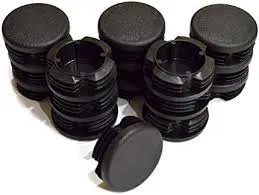Mobile:+86-311-808-126-83
Email:info@ydcastings.com
1 4 pipe cap
Understanding 1% 204% Pipe Caps Importance, Types, and Applications
In the world of piping systems and plumbing installations, ensuring secure and efficient connections is paramount. Among the vital components that serve as essential fixtures in these systems are pipe caps. Specifically, the 1% 204% pipe cap plays a critical role in various industrial and engineering applications. This article aims to delve into the significance of 1% 204% pipe caps, exploring their features, types, and practical uses.
What is a Pipe Cap?
A pipe cap is a fitting that closes the end of a pipe. Its primary function is to seal the pipe to prevent the escape of fluids, either gas or liquid, protecting the integrity of the entire piping system. These caps come in various sizes, shapes, and materials, adapted to the specifications required by different industries, from plumbing to manufacturing and oil and gas.
Importance of Pipe Caps
The necessity of pipe caps cannot be overstated. They serve several vital functions
1. Leak Prevention One of the primary purposes of a pipe cap is to prevent leaks. Without proper sealing at the end of pipes, pressure build-up can occur, leading to potential failures and hazardous situations. 2. Protection Against Contaminants Pipe caps protect the interior of the pipes from contaminants. Dust, debris, and moisture can compromise the quality of the fluids being transported, and pipe caps act as a barrier against these elements.
3. Maintenance and Repair In operational systems, being able to cap a pipe enables easier maintenance and repairs. Workers can temporarily close off portions of a system to conduct inspections or make repairs without having to shut down the entire operation.
4. Storage Safety When pipes are not in use, capping them ensures that the fluids within do not evaporate or escape, maintaining safety in storage areas.
Types of Pipe Caps
Pipe caps are categorized based on their design and materials. The 1% 204% pipe cap specification may refer to specific dimensions relevant for particular industrial uses. Here are some common types of pipe caps
1. End Caps These are the most common type, designed specifically for sealing the ends of pipes.
2. Threaded Caps These caps feature internal threads and can screw onto the ends of pipes, providing a tighter seal suitable for high-pressure applications.
3. Weld Caps Made for welding onto the pipe ends, these caps are ideal for creating permanent seals.
1 4 pipe cap

4. Reducing Caps These caps allow for a transition in pipe size, facilitating connections between differently sized pipes.
Materials Used
Pipe caps are manufactured from a variety of materials depending on the intended application. Common materials include
- PVC (Polyvinyl Chloride) Lightweight and resistant to corrosion, PVC caps are often used in plumbing and irrigation.
- Stainless Steel Known for its strength and resistance to heat and corrosion, stainless steel caps are preferable in high-pressure and high-temperature environments, such as in oil and gas industries.
- Carbon Steel Frequently used in industrial applications, carbon steel caps offer durability and rigidity, enhancing the pipes' ability to withstand extreme conditions.
- Plastic These caps are often employed in less demanding environments, valued for their lightweight and cost-effectiveness.
Applications
The applications for 1% 204% pipe caps are vast and varied. They are utilized in numerous industries, including
- Oil and Gas In pipelines transporting crude oil and natural gas, pipe caps are essential for ensuring safety and preventing leaks.
- Water Supply Municipal water systems use pipe caps to maintain a secure network, ensuring clean water delivery and system integrity.
- Manufacturing In production facilities, pipe caps protect process piping and facilitate maintenance by isolating sections of the pipeline.
Conclusion
In conclusion, the 1% 204% pipe cap is a significant component in the realm of piping systems. Its ability to prevent leaks, protect pipes from contaminants, and assist in maintenance makes it invaluable across various industries. With a variety of types and materials available, selecting the appropriate pipe cap is critical to the efficiency and safety of piping systems. Understanding their importance not only aids in making informed decisions during installation or repairs but also ensures the long-term reliability of these essential systems.
-
Why Should You Invest in Superior Pump Castings for Your Equipment?NewsJun.09,2025
-
Unlock Performance Potential with Stainless Impellers and Aluminum End CapsNewsJun.09,2025
-
Revolutionize Your Machinery with Superior Cast Iron and Aluminum ComponentsNewsJun.09,2025
-
Revolutionize Fluid Dynamics with Premium Pump ComponentsNewsJun.09,2025
-
Optimizing Industrial Systems with Essential Valve ComponentsNewsJun.09,2025
-
Elevate Grid Efficiency with High-Precision Power CastingsNewsJun.09,2025











